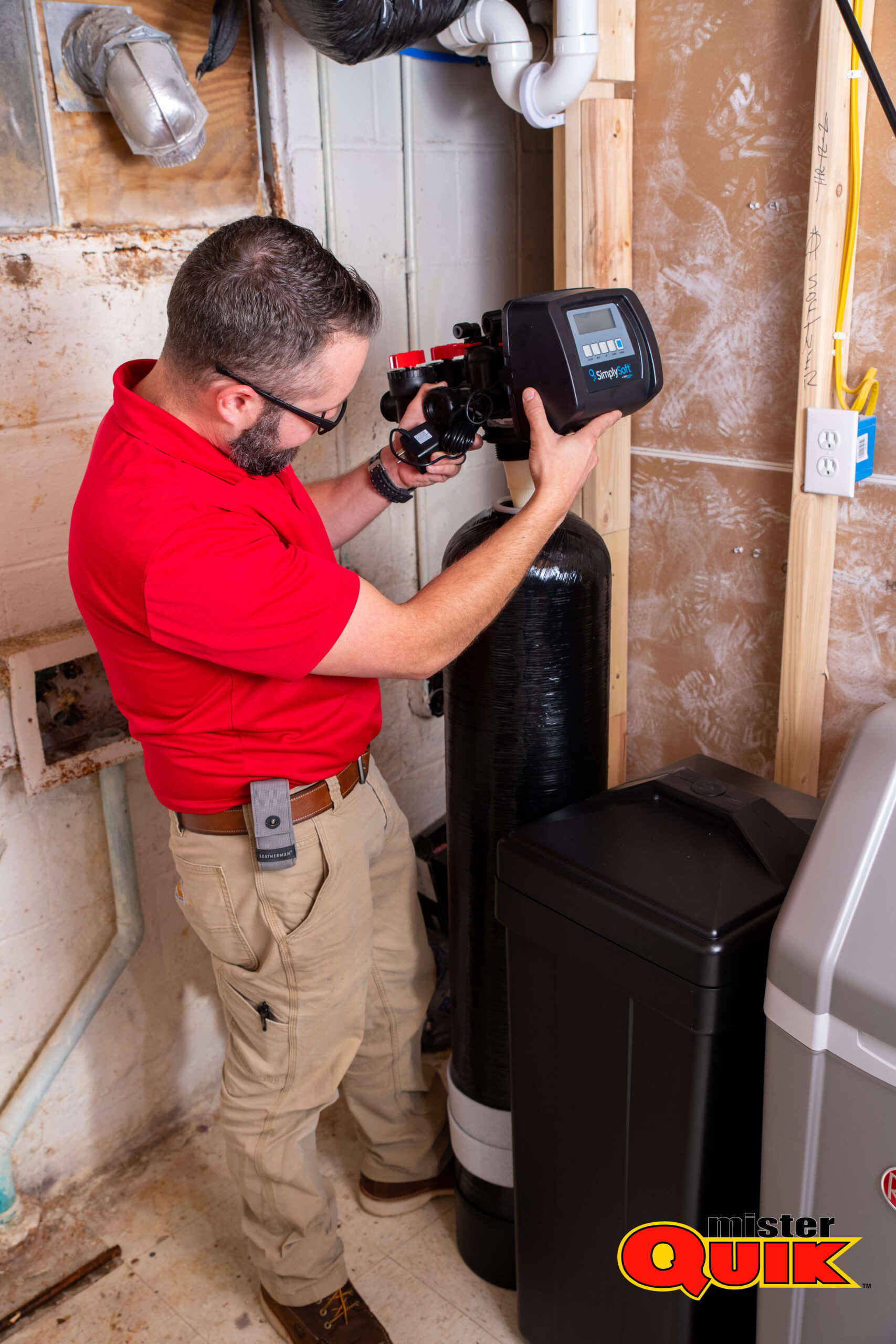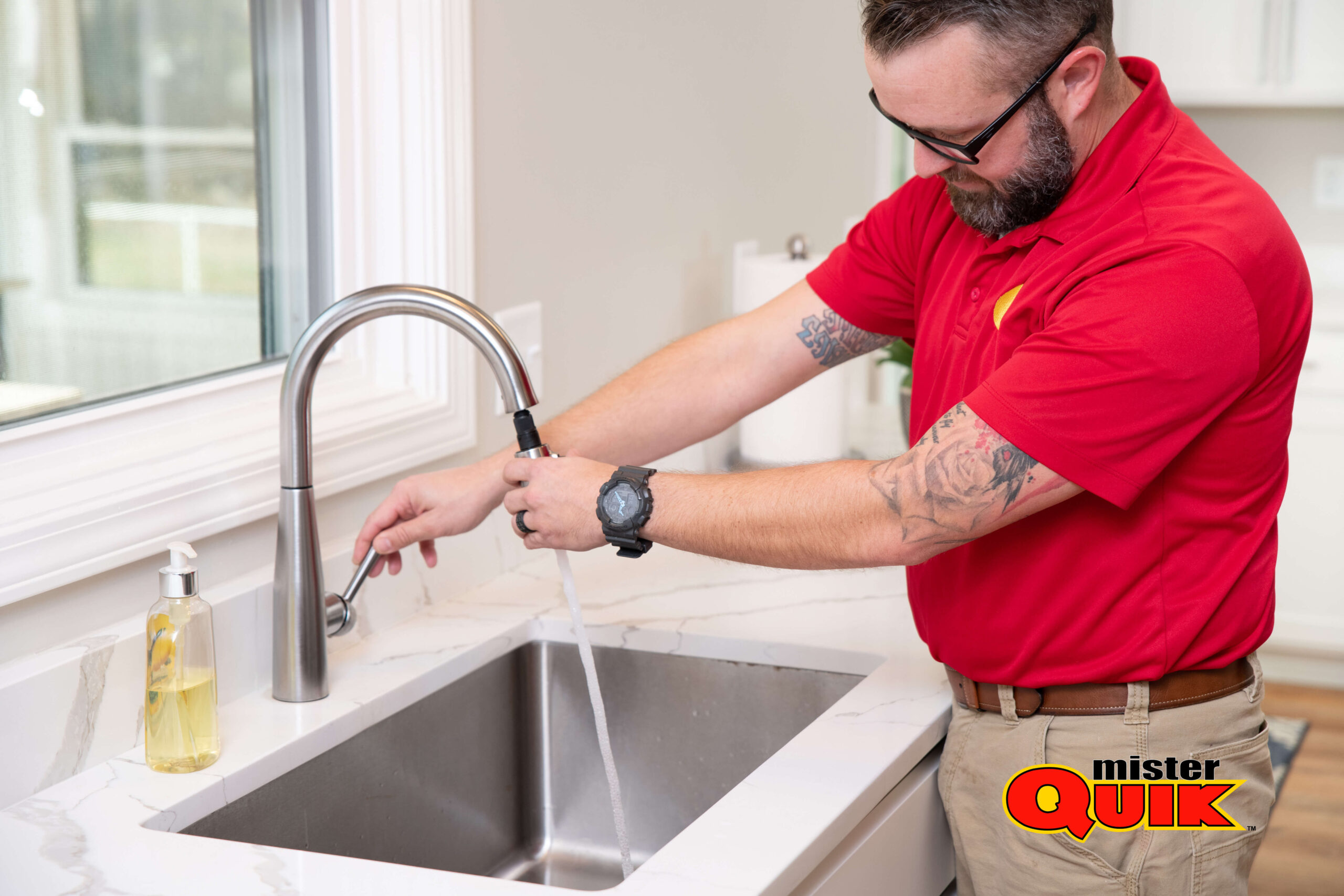best water filtration system for home
Schedule on your own without making a call. Click the button below to get started!

plumbers near me
When you’re in need of reliable plumbing services nearby, look no further than Mister Quik Home Services. Our team of experienced plumbers is dedicated to providing top-notch plumbing solutions tailored to your location. From leaky faucets to major plumbing repairs, we’re here to address all your plumbing needs efficiently and effectively.
With our prompt response times, transparent pricing, and dedication to customer satisfaction, you can trust Mister Quik to handle all your plumbing needs with professionalism and expertise. Don’t let plumbing issues disrupt your daily routine – contact us today to schedule an appointment with our plumbers near you and experience the difference our expertise can make in your home.
best whole house water filtration system
Choosing the best whole house water filtration system depends on your specific water quality concerns and needs. Here’s an overview of popular options to consider:
Effective at removing a wide range of contaminants: RO systems are highly effective at removing various impurities, including chlorine, lead, arsenic, fluoride, and hard water minerals. Excellent for areas with high contaminant levels: If your water quality is poor and you desire comprehensive filtration, RO systems are a good choice. Cons: May waste water, requires frequent filter replacements, and can be more expensive.
Removes dirt, sand, and rust: These systems primarily target larger particles like sediment, dirt, sand, and rust, improving water clarity. Cost-effective and low maintenance: Generally affordable and require minimal maintenance, making them a budget-friendly option for basic filtration. Cons: Do not address dissolved contaminants like chlorine or heavy metals.
Reduces chlorine, taste, and odor: These systems primarily use activated carbon filters to remove chlorine, improve taste and odor, and address some organic contaminants. Relatively affordable and easy to maintain: Generally cost-effective and require periodic filter replacements for continued effectiveness. Cons: Do not remove a wide range of contaminants like RO systems or soften hard water.
Addresses hard water issues: Specifically designed to remove hardness-causing minerals like calcium and magnesium, improving water quality for various household applications. Benefits for plumbing and appliances: Soft water can improve the lifespan of pipes, fixtures, and appliances by reducing mineral buildup. Cons: Not a filtration system, does not remove contaminants, and may require additional sodium or potassium for regeneration (depending on the type).
Tap water in Indiana generally meets federal safety standards set by the EPA. Public water systems are regularly tested, and water treatment facilities work to ensure safety. However, water quality can vary, and it’s advisable to check local water quality reports provided by your utility. If you have concerns or are in an area with private well water, consider testing for contaminants. For the most current information, consult local authorities or the Indiana Department of Environmental Management.
The city of Westfield, Indiana, typically sources its water from various wells and groundwater supplies. Local water utilities manage the water supply infrastructure, which may include wells, water treatment facilities, and distribution systems. For the most accurate and up-to-date information on Westfield’s specific water sources, it is recommended to contact the Westfield water utility or the appropriate municipal authorities.
Indiana’s water hardness can vary depending on the specific region. Generally, the state has a mix of both hard and soft water areas. The hardness of water is determined by its mineral content, particularly calcium and magnesium. Areas with limestone bedrock, which is common in parts of Indiana, may have harder water due to the presence of these minerals. To know the water hardness for a specific location in Indiana, it’s recommended to check with the local water utility or municipality, as they often provide water quality reports or can direct you to relevant resources.
The ideal water hardness for a house can vary, but it is commonly recommended that water falls within the range of 61-120 mg/L or 3.5-7.0 grains per gallon for a balanced and comfortable experience. This classification is considered slightly to moderately hard, striking a balance that avoids excessive mineral deposits while still providing some beneficial elements. The appropriate water hardness level may also depend on the presence of appliances like water heaters and dishwashers, as well as personal preferences. If uncertain, homeowners can have their water tested, and local water authorities or private testing services can provide more specific information tailored to their region.
Identifying the most polluted water in Indiana is complex, as pollution sources vary. Historically, areas with industrial activities and certain rivers, like the Grand Calumet and parts of the Wabash, have faced pollution concerns. However, water quality can change, and efforts are made to address issues. For current information, consulting the Indiana Department of Environmental Management (IDEM) or relevant environmental authorities is recommended.
whole house water filtration systems
Once you understand your needs and preferences, you can explore specific whole house water filtration systems available in the market. Here are some resources to help you get started:


Major online retailers like Amazon and Home Depot offer various whole house water filtration systems.
Local plumbing supply stores can provide recommendations and carry specific systems or brands.
Consulting with water treatment specialists can offer personalized advice based on your water quality analysis.
plumbing companies
While some homeowners with advanced DIY skills might attempt installing whole house water filtration systems themselves, it’s generally recommended to hire licensed plumbers or water softener installers for these reasons:


Professionals ensure the system is installed correctly to avoid leaks, damage, or improper functionality.


Some systems, like RO systems, involve intricate plumbing connections and require expertise for safe and efficient installation.


Plumbers are familiar with local building codes and can ensure the installation complies with regulations.
water softener installers
Regular maintenance is crucial for optimal performance and longevity of your water softener. Here’s what water softener service typically entails:
1. Salt pellet or potassium chloride replenishment (depending on the type):
These minerals are used in the regeneration process to remove hardness minerals from the system.
2. Inspection and cleaning of internal components:
A qualified technician will inspect the system for any issues and clean internal components to maintain efficiency.
3. Sanitization:
Periodic sanitization helps prevent bacterial growth within the system.
water softener service
Regular water softener service is crucial to ensure your system functions efficiently and continues to provide soft water for your home. Here’s a breakdown of what water softener service typically entails:
Salt pellet or potassium chloride (depending on the type): These minerals are essential for the regeneration process. During regeneration, the system back washes and rinses itself, flushing out accumulated hardness minerals. The salt or potassium chloride then replaces these minerals in the resin tank, allowing the system to soften water again. Frequency: The frequency of replenishment depends on your water hardness level and water usage. A qualified technician can assess your specific needs and recommend a refill schedule.
Internal components: A technician will inspect the water softener's internal components for any signs of wear, tear, or malfunction. This may include checking the brine tank, control valve, and resin tank. Cleaning: They will also clean the system to remove any sediment or buildup that could affect its performance. This might involve cleaning the brine tank, control valve components, and filters.
Periodic sanitization helps prevent bacterial growth within the system. This can be especially important if the system uses a brine tank for salt storage, as stagnant water can create a breeding ground for bacteria. Frequency: The frequency of sanitization depends on your water quality and the manufacturer's recommendations. Consult your water softener manual or the service provider for specific guidelines.
- Review reports provided by your utility or the Indiana Department of Environmental Management.
- Look for any advisories or notices regarding water quality issues.
- Consider testing your tap water for contaminants, especially if you have private well water.
- Look for certified water testing services or kits available in your area.
- Reach out to the Westfield water utility or relevant municipal authorities for information on water sources and treatment processes.
- Inquire about any recent changes or concerns regarding water quality in your area.
- Determine the water hardness level in your area by checking with the local water utility or municipality.
- Consider testing water hardness in your home to ensure it falls within the recommended range for comfort and appliance maintenance.
- Stay updated on water pollution issues by consulting resources such as the Indiana Department of Environmental Management (IDEM).
- Be aware of historical pollution hotspots and ongoing efforts to address water quality concerns in Indiana.









